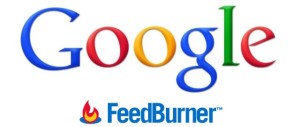Google FeedBurner: The History Behind It
 With so many content creators publishing on the internet, getting yourself heard can be a challenge. Google FeedBurner can help you manage how your content is distributed and get to know your audience.
With so many content creators publishing on the internet, getting yourself heard can be a challenge. Google FeedBurner can help you manage how your content is distributed and get to know your audience.
By offering a feed to the audience, the website creator helps their readers subscribe to their content. Feed subscribers then use a feed reader to get all their content delivered in one place, without having to access each website separately or have everything sent to their email address.
Google FeedBurner gives its users options for managing their feeds and find out more about their web traffic. It was started in 2004 by Dick Costolo, a University of Michigan graduate who later became CEO of micro-blogging site Twitter. Google bought FeedBurner in 2007 for a figure that was rumoured to stand at $100 million. Following similar actions with its other acquisitions, Google proceeded to make premium features free to use.
 FeedBurner was now one of three RSS focused products at Google. It stood together with Google Reader and AdSense for Feeds to provide publishers and website owners with tools to manage their own RSS feeds, as well as keep up to date with other pages they were interested in. AdSense for Feeds was particularly interesting as it was shrouded in doubt at first and many people didn’t think advertising could really work with feeds. However, over two-thirds of feeds managed by Google FeedBurner carried advertising at its peak, showing that anything is possible if there’s a will to try.
FeedBurner was now one of three RSS focused products at Google. It stood together with Google Reader and AdSense for Feeds to provide publishers and website owners with tools to manage their own RSS feeds, as well as keep up to date with other pages they were interested in. AdSense for Feeds was particularly interesting as it was shrouded in doubt at first and many people didn’t think advertising could really work with feeds. However, over two-thirds of feeds managed by Google FeedBurner carried advertising at its peak, showing that anything is possible if there’s a will to try.
Despite the open mindedness of users, Google stopped offering the AdSense for Feeds service in 2012. Google Reader was the next RSS service to bite the dust, being shut down in July 2013. With FeedBurner the last one standing, many users have expressed concern that its closure may follow suit. The retirement of Google Reader didn’t come as much of a surprise to tech enthusiasts as many noticed it had been systematically neglected by Google.
Google FeedBurner is currently suffering from the same issues, with less and less staff dedicated to the project and no new features added. In fact, it seems that FeedBurner is even left out of company-wide updates when all Google services get a checkup and possibly new features. The latest was a layout overhaul in which FeedBurner was not included. If speculation online is to be taken to heart, the question is not if Google will shut FeedBurner but when will it happen…….
